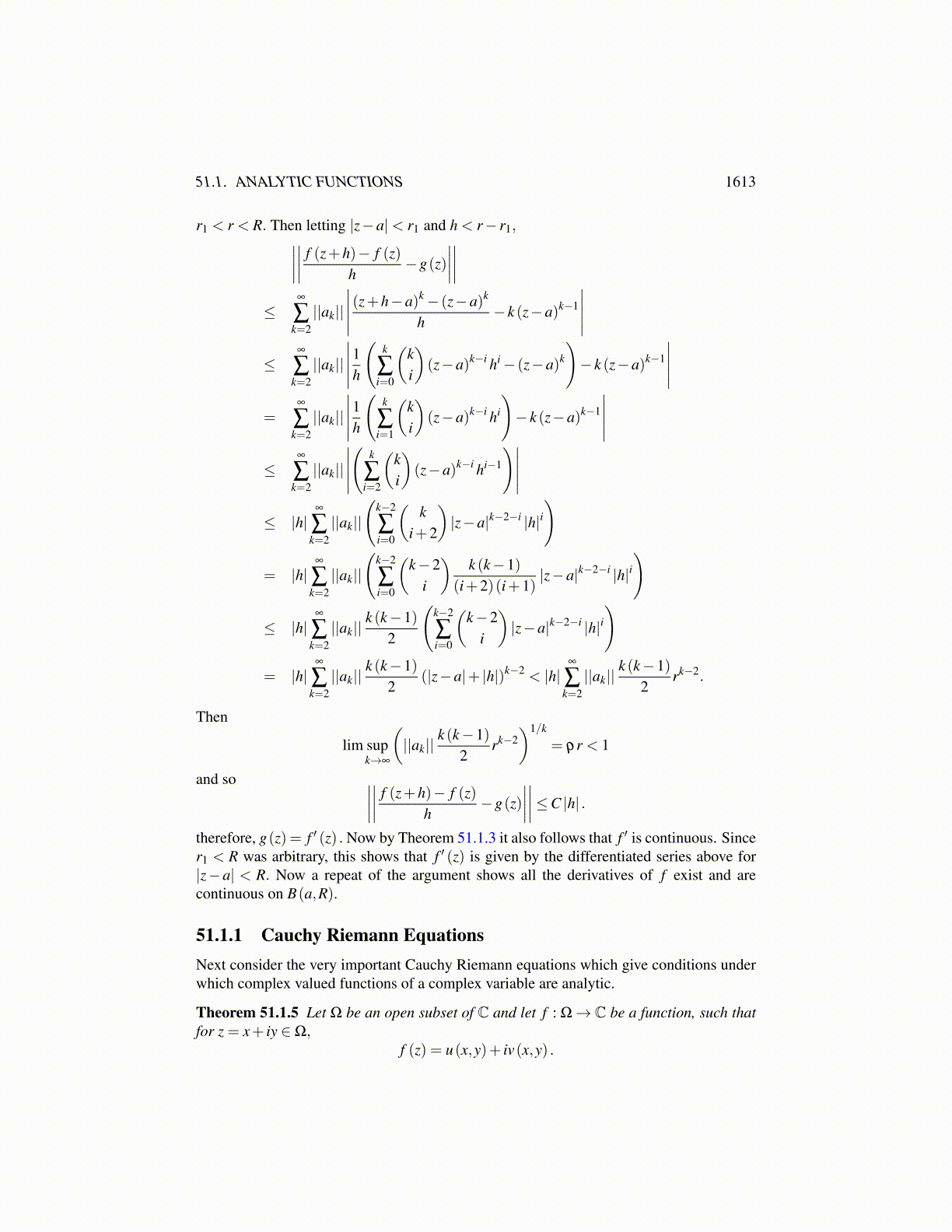
Chapter 51
Fundamentals Of Complex Analysis51.1 Analytic Functions
Definition 51.1.1 Let Ω be an open set in C and let f : Ω→ X. Then f is analytic on Ω iffor every z ∈Ω,
limh→0
f (z+h)− f (z)h
≡ f ′ (z)
exists and is a continuous function of z ∈Ω. Here h ∈ C.
Note that if f is analytic, it must be the case that f is continuous. It is more common tonot include the requirement that f ′ is continuous but it is shown later that the continuity off ′ follows.
What are some examples of analytic functions? In the case where X = C, the simplestexample is any polynomial. Thus
p(z)≡n
∑k=0
akzk
is an analytic function and
p′ (z) =n
∑k=1
akkzk−1.
More generally, power series are analytic. This will be shown soon but first here is animportant definition and a convergence theorem called the root test.
Definition 51.1.2 Let {ak} be a sequence in X . Then ∑∞k=1 ak ≡ limn→∞ ∑
nk=1 ak whenever
this limit exists. When the limit exists, the series is said to converge.
Theorem 51.1.3 Consider ∑∞k=1 ak and let ρ ≡ limsupk→∞ ||ak||1/k . Then if ρ < 1, the
series converges absolutely and if ρ > 1 the series diverges spectacularly in the sensethat limk→∞ ak ̸= 0. If ρ = 1 the test fails. Also ∑
∞k=1 ak (z−a)k converges on some disk
B(a,R) . It converges absolutely if |z−a|< R and uniformly on B(a,r1) whenever r1 < R.The function f (z) = ∑
∞k=1 ak (z−a)k is continuous on B(a,R) .
Proof: Suppose ρ < 1. Then there exists r ∈ (ρ,1) . Therefore, ||ak|| ≤ rk for all klarge enough and so by a comparison test, ∑k ||ak|| converges because the partial sums arebounded above. Therefore, the partial sums of the original series form a Cauchy sequencein X and so they also converge due to completeness of X .
Now suppose ρ > 1. Then letting ρ > r > 1, it follows ||ak||1/k≥ r infinitely often. Thus||ak|| ≥ rk infinitely often. Thus there exists a subsequence for which
∣∣∣∣ank
∣∣∣∣ converges to∞. Therefore, the series cannot converge.
Now consider ∑∞k=1 ak (z−a)k. This series converges absolutely if
lim supk→∞
||ak||1/k |z−a|< 1
1613